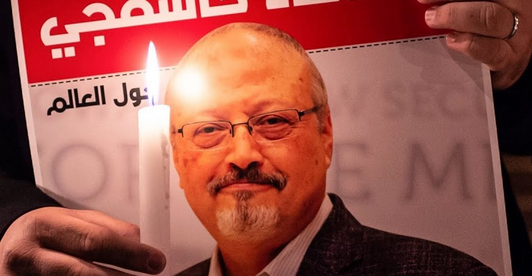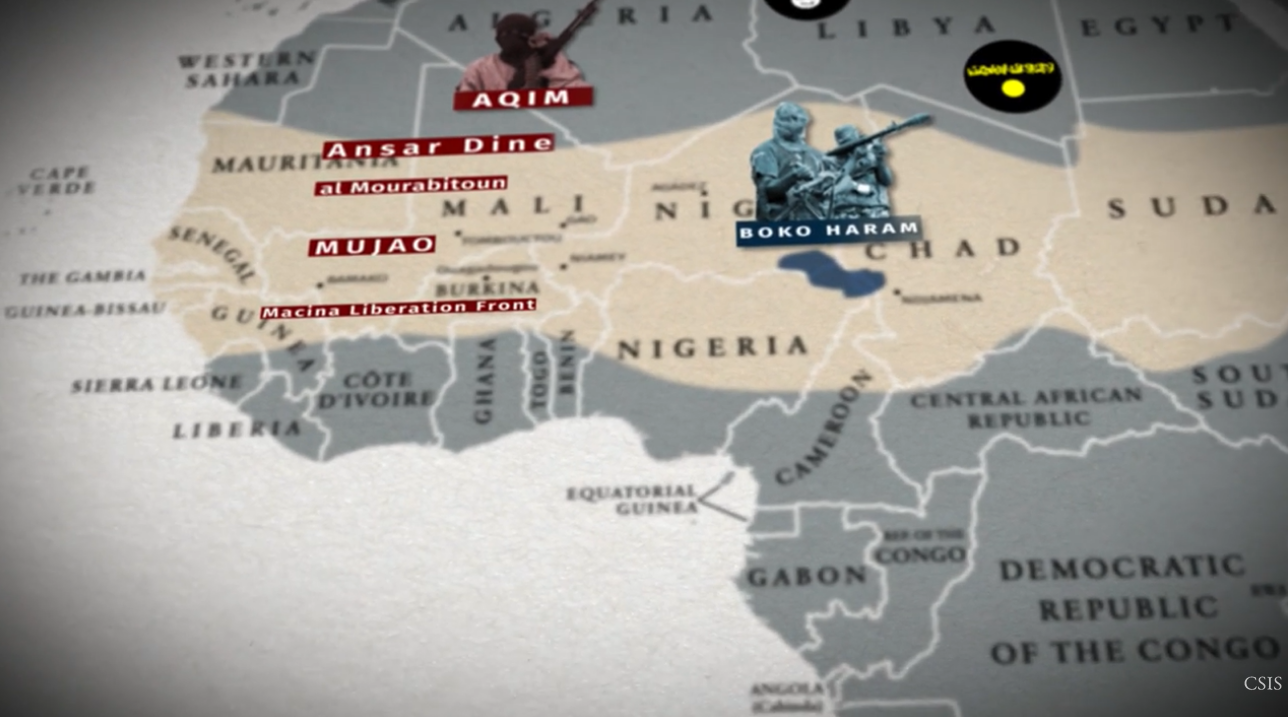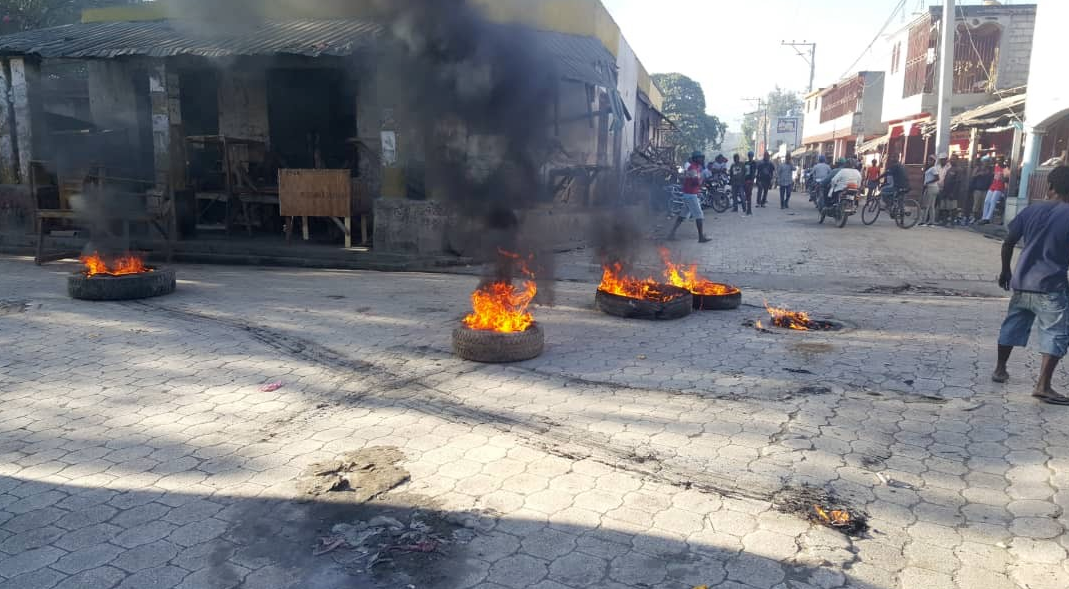Photos: YouTube Screenshots
Jamal Khashoggi’s fame suddenly rose like meteors, not because he won the lottery, a Nobel Prize, a Pulitzer or any of those coveted prizes, but for the gruesome manner his body was decapitated in the Turkish consulate by agents of the Saudi government on the orders of crown prince Mohammed bin Salman, as alleged. Today, October 2nd, makes it five years since that blood-curdling murder, and his body, still not found.
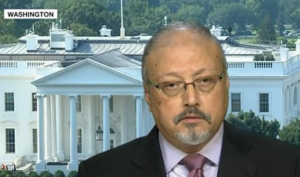
A columnist for the Middle East Eye and The Washington Post, Mr. Khashoggi had fled Saudi Arabia in 2017, having been banned from writing, an act he likened to being like “a fish out of water.” His visit to Turkey in the week leading to his murder had been to marry his fiancée, Hatice Cengiz, and having booked an appointment with the Saudi consulate in that country to obtain some documents pertaining to his marriage, the murder plot suddenly began, and the scheming, intrigues, conspiracies and evil machinations laid out.
When the gentleman walked into the consulate for the appointment on October 2nd 2018 as agreed, he was ambushed and strangled by the 15-man killer squad flown all the way from Saudi Arabia a day earlier. They were armed with syringes loaded with sedatives, anesthetics, an electric bone saw and other instruments of mutilation. Mr. Khashoggi was, of course, no match, as he was overpowered, anesthetized and his body sawed to pieces and disposed of.
While the civilized world wanted the truth about the gory affair, the Saudi authorities hid that grain of truth in a haystack of lies and obfuscation: Firstly, they claimed the journalist had been attended to and left through the front door. They even produced a body-double to buttress their spurious claims. When that wasn’t convincing enough, they alleged that the journalist had been involved in an altercation and a fist fight which led to his death. This argument, too, didn’t hold water. It was several days after that they eventually revealed that they had indeed, butchered Mr. Khashoggi, thus, corroborating the irrefragable evidence of the Turkish secret agents who had bugged the building while the blood-chilling event was going on.
Jamal loved his country and his series of articles for The Washington Post demonstrated that he wanted Saudi Arabia to be a torchbearer in the area of transparency, freedoms, and respect for fundamental human rights. In the face of a collective conspiracy of lies by a legion of Saudi Arabian propagandists who spewed out empty rhetoric, as well as some of the country’s intellectuals who chose to play to the gallery, Jamal stood firmly for the truth, writing again and for the umpteenth time, that Saudi Arabia and indeed, the Arab world, needed social and political reforms. He was a staunch supporter of the Arab Spring of 2011 and an objective and rational individual who applauded the crown prince when he made sporadic attempts at democratizing the kingdom by allowing women to drive and own cars. He also demonstrated – true to his core values – that he did not suffer fools gladly when he took a swipe at the ruler for railroading women to jails and subjecting many of them to public flogging.
It’s only a pity that Mr. Khashoggi’s incessant cries for good governance fell on deaf ears, as the iron-fisted crown prince, Mohammed bin Salman, wanted none of it except his own “home-grown” aspects of Arabian “democracy” encapsulated in flagrant disregard for the rule of law, holding captives without due process, setting up of kangaroo courts, beheading of dissidents for the flimsiest of excuses, and promoting other medieval practices which are at variance with acceptable standards and norms. Consequently, as he stood up for what he believed in and espoused them in his writings, he became passionately hated, excoriated, slandered, pilloried, pursued, teleguided and eventually caught and liquidated.
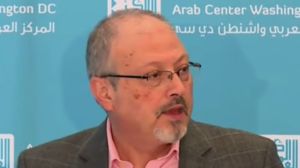
It is an established fact that nothing happens in the hierarchy of the Saudi leadership without the knowledge and imprimatur of the crown prince, Mohammed bin Salman, not least, this high-profile murder. While he flatly denies ordering the killing, his singsong nowadays is: “I am the Saudi ruler and this unfortunate murder happened under my watch. I don’t know if that could be classed as responsibility.” This, surely, is a veiled, preposterous and cowardly attempt at escaping culpability. It is meant to fool the unwary, but we all know that the “order to kill” had gained his assent and his royal seal of approval.
That’s the unpalatable truth and nothing can discredit, deflect or derail it.
I have argued in some of my writings that as journalists and members of the Fourth Estate, we have a vital role to play in society. This role encompasses speaking truth to power, being a voice for the voiceless and standing up for those unable to stand up for themselves. These are our sacred roles and we can’t just shirk them, not even if all the dictators of this universe were to bare their bloody fangs, intensify their current intimidatory tactics or revamp their torture chambers. The human spirit can never be conquered. It will endure and eventually flourish.
To the bin Salmans of this world, therefore, I say a day of reckoning will definitely come, no matter how long it takes, because this power you’re so obsessed with, is transient. It is ephemeral. Where’s Romanian Ceausescu today? He was a demigod when he ruled that Eastern European country, and his harsh pronouncement, tantamount to a command. However, when his day of reckoning came, his erstwhile subservient henchmen applauded as his subordinate officers pumped live bullets into his head and hung him upside down like a common animal.
Where’s Mobutu Sese Seko today? A megalomaniac of the worst type, he massacred his own people and plundered his country’s wealth with reckless abandon only to die a broken man in Morocco, his gravesite decorated – and rightly so – with spittle and feces.
Where’s power-drunk Saddam Hussein today? He engaged in clinking glasses of cognac, as critics of his regime, including journalists, were led to the firing squad and the gallows after a sham trial. But did he, himself, escape the gallows in the end? Such is the price for the arrogance of power and the ephemerality of power itself.
As I write, crown prince Mohammed bin Salman is engaged in various publicity stunts and reputation laundering, including sportswashing, hosting numerous boxing events and parading notable football stars like Cristiano Ronaldo, Karim Benzema, Neymar, and others, to divert attention from his regime’s series of human rights abuses.
The choice is ultimately his: Does he want to leave a positive legacy and a democratized society for future generations, or remain an empty shell awaiting the bulldozers of history?
The choice, again, is his to take.
Martins Agbonlahor is a trained lawyer, journalist and author. He resides in Greater Manchester, The United Kingdom.
